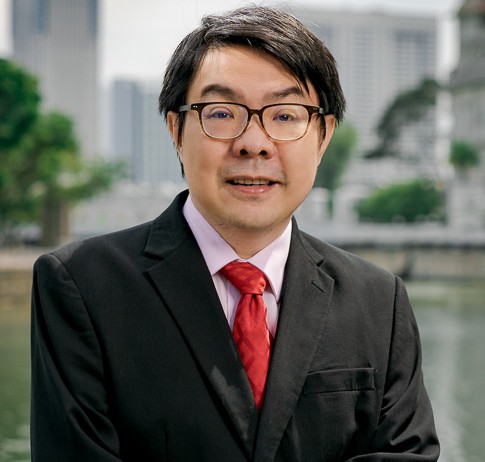MAS announced significantly tightened criteria for Section 13O/U fund management tax incentive schemes for fund vehicles managed by family offices.
Changes take effect for new applications made from 18 April 2022.
This update urgently alerts our clients and contacts regarding the new stricter criteria announced by the Monetary Authority of Singapore today, 11 April 2022, and which take effect in a week (i.e. 18 April 2022).
In view of the very short time frame before implementation, potential applicants for a Section 13O/U incentive should consider whether it is feasible for them to make ‘preliminary submissions’ this week.
More generally, we would be available to speak further if you wish to discuss anything relating to the changes.
What cases are covered by the new stricter criteria?
Cases where the first ‘preliminary submission’ is made from 18 April 2022, will be covered by the new criteria.
Cases for which MAS has already granted the Section 13O or 13U awards, or are in the middle of processing an application, will generally not be affected.
However, if a pending application to MAS is ‘stale’ (i.e. there has been no communication with MAS for 6 months), MAS may require the application to be restarted under the new criteria.
In what ways have the S13O/U award criteria become more stringent?
For Section 13O cases (previously known as Section 13R) only:
- the fund must now have a minimum fund size of S$10m at the point of application and must commit to increasing its assets under management (‘AUM’) to S$20m within 2 years. Currently, there is no minimum AUM for Section 13O cases.
- the family office must have a minimum of 2 investment professionals (‘IPs’), but may be given a 1 year grace period to employ the second IP. Currently, there is no prescribed minimum number of employees for the SFO. Although it is not expressly stated in the guidelines, it is quite possible that the MAS may be more stringent in assessing the academic and professional experience of proposed IPs – whether they are family members or unrelated persons.
- the absolute minimum total business spending annually remains at S$200,000, but this is subject to a new ‘tiered business spending framework’ pegged to AUM size (see below).
A footnote to MAS’ new guidance also mentions that AUM is to be determined using ‘Net Asset Value based on accounting convention’. This suggests that capital injected into the fund as shareholder’s loan will no longer count towards AUM. The fund entity will therefore need to be adequately capitalised (whether by way of ordinary shares or preference shares).
For Section 13U cases (previously known as Section 13X) only:
- the existing minimum fund size of S$50m at the point of application is unchanged.
- the family office must have at least 3 IPs, with at least one IP being a non-family member. A grace period of 1 year may be given for the non-family member IP. The requirement for at least 1 non-family member to be an IP is new.
- the absolute minimum local business spending annually is raised to S$500,000 (from S$200,000) in any basis period, and is also subject to a new ‘tiered business spending framework’ pegged to AUM size (see below).
For both Sections 13O and 13U cases:
- There is a new requirement for the fund to make some local investments. This must comprise at least 10% of the fund’s AUM or S$10m, whichever is lower, ‘at any one point in time’. This appears to be an ongoing requirement but if it cannot be met at the point of application, a grace period of 1 year may be given.
Local investments include (i) equities listed on Singapore-licensed exchanges; (ii) qualifying debt securities; (iii) funds distributed by Singapore-licensed/registered fund managers; (iv) private equity investments into non-listed Singapore-incorporated companies (e.g. start-ups) with operating business(es) in Singapore.
We note from this definition that the funds referred to in item (iii) do not necessarily refer to locally managed or constituted funds, but only those “distributed” by managers here. Under the Securities and Futures Act 2001, a licensed/registered fund manager may distribute funds managed by its related corporations abroad. We also note that the current definition does not cover banks which are neither licensed nor registered under the SFA, but are “exempt” from holding a capital markets services licence for fund management. We are in the course of seeking clarification from MAS on the scope of item (iii).
- The new tiered-business spending framework is as follows. Under the framework, the minimum required business spending will depend on the fund’s AUM at the end of each reporting period.
One point to flag is that for Section 13U cases, the minimum business spending must be incurred locally (i.e. in Singapore) whereas this is not a strict requirement for Section 13O cases. We observe that with the substantial increase in minimum business spending for Section 13U cases, the distinction between the minimum spending requirements for Section 13O and Section 13U cases has sharpened significantly.
Other points
If a fund is managed by a licensed fund manager and already has or is seeking Section 13O or Section 13U approval and wishes to change to a family-office-managed structure, it would have to make a fresh application, and potentially be subject to the new criteria (if the new application is made on or after 18 April 2022).
Finally, for a Variable Capital Company (‘VCC’) (which may apply for, has already applied for, or has obtained Section 13U or Section 13O tax incentive status, and which is managed by a licensed/registered FMC as required by the VCC legislation), that has the intention to replace the licensed manager with a single family office when that is allowed under the VCC legislation (which it is hoped will be a matter of time), we note that the Section 13O/U tax incentive conditions for the VCC after the family office takes over, would likely be based on the more stringent conditions for family offices.


